Interview with Harman International CEO
Tom's had a chance to sit down with Dinesh Paliwal, President and CEO of Harman International, to talk about Apple, the Grammys and more.
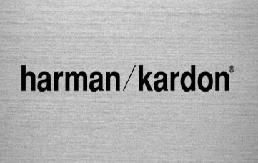
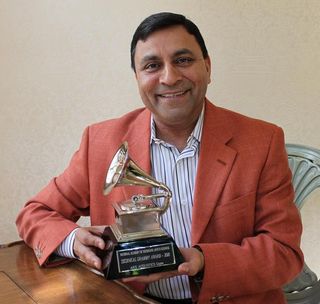
Up until recently, I had no idea that the Harman Kardon and JBL brands were owned by the same company. However, Harman International owns those as well as popular brands like AKG, Mark Levinson and Crown Amplifiers. Who knew? While Harman International might not ring a bell, the corporation's brands probably do. Harman Kardon offers speakers, home theater systems, and a plethora of products and accessories in the iPod/iPhone universe. JBL is one of the best-selling speaker brands (for both consumers and professionals), and both brands are also visible in the laptop space. Companies including Lenovo, Dell and Toshiba use Harman Kardon or JBL speakers and technology in their notebook lines. Harman is also very popular in the professional audio scene, with brands like AKG and Crown Amplifiers being standards for studio microphones and amplification, respectively.
Tom's Guide sat down with Dinesh Paliwal, the CEO of Harman International, a few weeks ago right after the Grammy's. Dinesh had received a technical Grammy on behalf of Harman International, specifically the company's AKG brand, which is synonymous with studio microphones and headphones.
Tom's Guide: So let’s start off with the Grammy you received on behalf of Harman. You weren't winning it for album of the year last night; you were at the technical Grammys. Was it a nominee process or was it more of a straightforward award?
Paliwal: There is a very rigorous nominee process done by the trustees of NARAS (the National Academy of Recording Arts and Sciences). Only two were given out; one was given to the great, great grandchildren of Thomas Edison, and the other one was given to us, so I was overwhelmed. “Wow!" That's all I could say. That [Harman] has been put in the company of Thomas Edison, we are honored. Then later on I had a few minutes to talk to Neil Portnow (the President of NARAS) and I thanked him. And he said "I'll remind you, Dinesh, yours is the only company that has been given TWO technical Grammys in the history of the world. Harman got first one in 2005 for JBL sound reproduction and this latest one is for AKG.
TG: Harman/Kardon used to be the brand that you would see on speakers for your computer--from Harman Kardon. And it seems in the last few years you've made a shift to JBL. If you go online and look up products, you'll recognize things that used to be Harman Kardon but now have the JBL brand because Harman Kardon owns JBL. Why did you make the switch?
Paliwal: Well, we never made a switch. This is what Harman International is trying to do: Harman Kardon is one our Marquee brands and will always be, and the same goes for JBL. There will never be any change with this. Harman has sixteen brands, but many consumers who were fans of Harman Kardon or JBL or AKG did not know the brands were a part of the same “House of Brands”. How do we go to the market and let people know that those who bought Harman Kardon should be proud to buy other products from Harman International that are the same quality as the AKG and JBL and Harman Kardon? So now, we are focusing on consumer brands. Harman Kardon is our number one brand, especially in Europe. JBL is very strong in North America. So we are positioning and focusing on Harman Kardon, JBL, AKG, Infinity…the consumer brands.
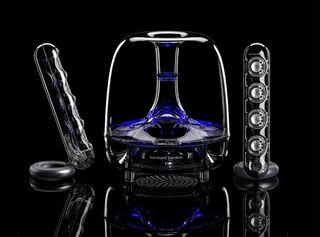
If you noticed a brand shift…It varies from market to market. But from our point of view, Harman Kardon and JBL are both very strong brands, particularly when you're talking about computers or laptops. In fact, Lenovo, Toshiba, and now even Dell...between them we have these two brands very heavily penetrated; either JBL inside, or Harman Kardon inside. So it could be marketing. Europe is actually promoting pretty heavily Harman Kardon with their computers, and JBL in Japan because Japan is very JBL-driven. And both brands are very popular in America.
Sign up to get the BEST of Tom’s Guide direct to your inbox.
Upgrade your life with a daily dose of the biggest tech news, lifestyle hacks and our curated analysis. Be the first to know about cutting-edge gadgets and the hottest deals.
TG: So would you say that JBL is a better known brand than Harman Kardon?
Paliwal: I think JBL is a better known brand in the professional audio world. There's no Harman Kardon on the professional level. The Grammys, the Kennedy Center, It's all either JBL or Crown Amplifiers, not Harman Kardon. From a professional point of view Harman Kardon was never a player. And we don't intend to push Harman Kardon to a professional level because we have other offerings. As more and more JBL is being seen when consumers go to the tours or concert hall, then people start to recognize, "Oh JBL is a big brand." So JBL has a lot more visibility from the commercial point of view, from the professional point of view. Harman Kardon has always been a consumer brand.
TG: So what is Harman looking to do in the near future?
Paliwal: My personal goal is that this company in five years should have at least two brands worth one billion dollars each, and at least three or four other brands at half a billion dollars each. This is what we have in mind for our key brands: Harman Kardon, JBL, AKG, Infinity, Mark Levinson, we're promoting those very heavily. We have to allow choice for our customer, that’s how I see it. When I was in Europe, people were saying, "We hate to be told that everything has to be one brand", and I think this is where we can differentiate and give choice. You can make your own system. Americans always made their systems themselves; they want to buy the best components and put together a system that is second to none. But on the contrary, Europeans and Asians they like to have a pre-built or pre-configured system. Now what we will do, based on customer research we've collected, is put together Harman Kardon AVR (Audio/Video Receiver) electronics with JBL or Harman Kardon speakers. Harman Kardon, per say, is not the speaker business. Harman Kardon is electronics, processing, A/V. So the combination might very well be AKG Microphones, JBL speakers, Harman Kardon electronics. That would be a nice system to have, second to none.
TG: So with so many brands, how does Harman International break down internally?
Paliwal: So we started as a sound company. We are one of the most prominent, single biggest sound companies in the world right now. But we have also grown very heavily on the heels of sound in automotive space. So today we do about seven to eight hundred million dollars worth of branded audio business in automotive alone. I would say most luxury cars are today with us. We replaced Bose in Mercedes, all Daimler cars today come out of the factory with Harman Kardon audio. We are also being picked up by BMW Mini, and we will also be in the BMW 3-series and 5-series cars soon, and now there are discussions going on to make Harman Kardon the BMW standard. Lexus is also on board, and JBL audio can be found in Toyota. Then we have Infinity, which is used by the car of the year last year, the Hyundai Genesis, as well as Chrysler.
Our second division is professional audio. We do sound for event like the Grammy’s and the opening ceremonies of the Olympics, and venues including the Kennedy Center and the O2 Arena in London. Anywhere sound really matters, by default, we are the ones who will be doing the whole thing. This would include, for example, power from Crown Amplifiers, JBL synthesizers, microphones and headphones from AKG.
Our third business is the consumer segment…this is where the company's roots are. We are a world leader when it comes to embedded razor transducers in laptops, which helps provide that perfect sound reproduction out of laptops. We are also a niche player in high-end home audio and multimedia, the latter of which covers accessories for iPhones and iPods. The consumer branch also includes after-market car audio, in-dash players and entertainment, speakers, etc.
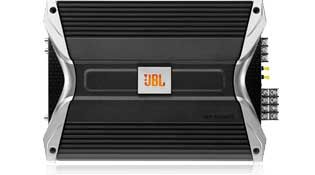
TG: It seems like Harman International in general used to have a very strong relationship with Apple. If you think of older Macs, you would often see them paired with the clear “bubble” speakers and subwoofer. I know it wasn't packaged with Apple machines, but it was certainly in Apple stores. Did you ever work very closely with Apple, and how is that relationship different from a PC manufacturer like Lenovo or Toshiba?
Paliwal: It’s a very different relationship, not to say that either one is more or less important. With Apple, you become paranoid with regard the quality. Test after test--to the point where you can get frustrated at times because they will not accept anything less than 100 percent. With Apple, we were very fortunate when they launched iPod. Then, 2006 was a banner year for Harman. We were so successful from launching early with Apple and our products were all over the place in Apple stores. Now they have ten times the number of stores they had before, and we enjoyed that success. What happened? As soon as you have success, it naturally attracts all kinds of competitors to the game. Everybody wanted to partner, everybody wanted to design and develop accessories including docking stations and speakers, etc. So Apple said "we're going to give everybody an equal chance, and here's the test process”. So the process had become a lot more bureaucratic.
We are still working closely with Apple, more closely than with any PC maker, and you can understand that PC and Apple are two different ball games. PC makers say "give us a standard, good product that will work every time,” whereas Apple says "we want something unique, something that’s first to the market”. Plus, with Apple, products, even in the alpha and beta stages, need to be working six to nine months before their release date. It's a long process, but we work very well. We've got a couple of dynamite projects in the works with Apple which are very unique.
TG: Is Harman doing anything with gaming or computer oriented headsets to market any point soon?
Paliwal: Absolutely. We have some great headphones available already tremendous line there, but there is more to come here.
TG: Over the last several years the music industry has shifted to online purchases. What kind of impact has this had on Harman Kardon?
Paliwal: We have some very fundamental research going on when it comes to digital music. Internally we call it Quantum Logic. What has happened since MP3 players have come into play? In my view, a whole generation is being deprived of what the true music quality is, or what it should be. We complained when the CD came because it chops up the fidelity of the music Now we have the MP3 players, they do further distortion. We are dealing with a lot of compression and decompression of audio. So we are developing a kind of software filter which has the capability to read the DNA of the originally recorded music, and if it can recreate the chopped off wave amplitude, and then reproduce the music. We've gone to Apple, the single largest distributor of songs today, with this technology. They understand that people are listening, and there's a shift coming already, a lot of people are starting to say, "I want my turntable back because I want to hear true quality." Our solution: we can give you a technology which, in a miniaturized version, can give you the richest sound of turntable or a surround sound system.
For implementation, we aren’t sure yet. It might be proprietary, so you will have to buy a Harman product to be able to enjoy fully decompressed music, not the compressed version you get in the marketplace. Or we can license that through partners like Apple or others. We have not decided yet.
TG: Earlier you said that Harman is a “niche player” in the home theater marketplace. Looking around online, Harman Kardon has virtually no presence in the “Home Theater in a Box” (HTIB) segment. How do you feel about HTIB setups? Is Harman Kardon going to make a push into that with Harman Kardon or one of your other brands?
Paliwal: Up until now, our philosophy was "Americans buy components." They put their systems together. However, this philosophy has changed. Many Americans are concerned with quality, but lack the time to put towards putting together their own system. So we are going to be launching Harman Kardon and JBL branded home theater systems. We will have the pricing schemes so they are affordable, but you can expect the same quality whether you buy the lowest offering from us or go higher.
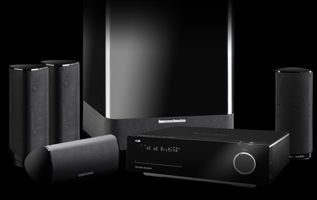
TG: What do you use in your personal home theater setup at home?
Paliwal: I have a Mark Levinson CD player and amplifiers, JBL synthesizers with four subwoofers, and there are six different speaker columns with...I forget how many speakers.
Devin Connors currently works as a community manager for Rocket League at Psyonix Studios, but he was previously a senior editor at Tom's Guide, writing about gaming, phones, and pretty much every other tech category. His work has also appeared in publications including Shacknews, GameZone, The Escapist, Machinima, and more.
